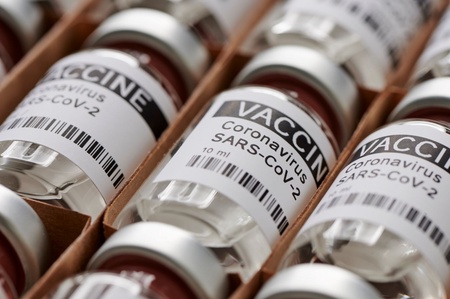The University of Aberdeen is among 13 universities, community organisations and small and medium size enterprises in a collective effort to improve vaccine uptake among minority groups.
Uptake of the Covid-19 vaccine varies widely across communities and researchers are hoping to identify the reasons behind these variations to ultimately increase vaccine uptake.
A collaboration of organisations called ‘Collaboration for change: Promoting vaccine uptake’ has been awarded £80,000 from the Economic and Social Research Council (ESRC), as part of UK Research and Innovation’s rapid response to Covid-19, to investigate and correct this disparity in vaccine uptake.
The proposal was co-produced by the University of Aberdeen, University College London, five community organisations based in Leicester, London, and Manchester, and two patient-engagement focused small and medium size enterprises. The full collaboration now includes health services and educational researchers at the two universities and four additional community organisation partners based in Glasgow, Ipswich and Suffolk, London, and Rotherham.
The programme will deliver recommendations on how to increase vaccine uptake across ethnic minority groups and will set a research agenda for improving national public health messaging across local communities.
The recommendations will be developed through a study that comprises a systematic review of international literature led by Dr Miriam Brazzelli from the University of Aberdeen. It will also incorporate research into the lived experience of community leaders who have been supporting communities throughout the pandemic. This broad-brush approach means recommendations will be both evidence-based and true-to-life led by the communities they are intended to support.
Professor Shaun Treweek, University of Aberdeen, said “Although the Covid-19 vaccine roll-out is generally regarded as a success, uptake is lower in some ethnic minority communities. The best way to reduce this hesitancy is to work collaboratively with people who best understand these communities.”
COUCH Health and Egality Ltd will provide commercial programme management and communications strategy to deliver a fast-moving programme with nationwide reach.
Ash Rishi, COUCH Health CEO said, “As part of our commitment to health equity, we’re proud to support this collaborative and play a role in exploring these important topics. This study takes a critical positive step toward change, and most importantly is a collaboration with those directly impacted by the issue.” Annette Jack, Egality CEO added: “This is a new approach for all members of the collaborative, but one we fundamentally believe in. Too many national research programmes and reports are delivered that do not include or reach the people they are funded to support. This collaboration pledges to be different.”
Collaborator, Charles Kwaku-Odoi from The Caribbean & African Health Network (CAHN) said of their involvement: “The Caribbean & African Health Network is delighted to be part of this study recognising the low uptake of COVID-19 vaccines in the Black community due to mainly historic issues and lack of trust. Where the concerns of community members have been addressed, and issues of access and culture catered for, we have seen change in attitudes and increase in uptake.”
Kirit Mistry, chair of South Asian Health Action charity, who is also involved in the project, agreed: “We are pleased to be engaged with this vaccine hesitancy research to bring in South Asian patient, carer and community experiences.”
Phanuel Mutumburi from the Ipswich and Suffolk Council for Racial Equality (ISCRE) voiced their support: “At ISCRE, we believe that building trust is the key to unlocking vaccine hesitancy in minority ethnic communities. We are excited to be part of this research as it will provide understanding of the challenges through engagement with people with lived-experience.”
And Talia Isaacs from the UCL Institute of Education said: “Harnessing community organisations’ experience to refine insights from data sources and tailor recommendations to the communities they represent is essential for improving vaccine uptake and building trust in the healthcare system.”
The support of the Economic and Social Research Council (ESRC) is gratefully acknowledged.


